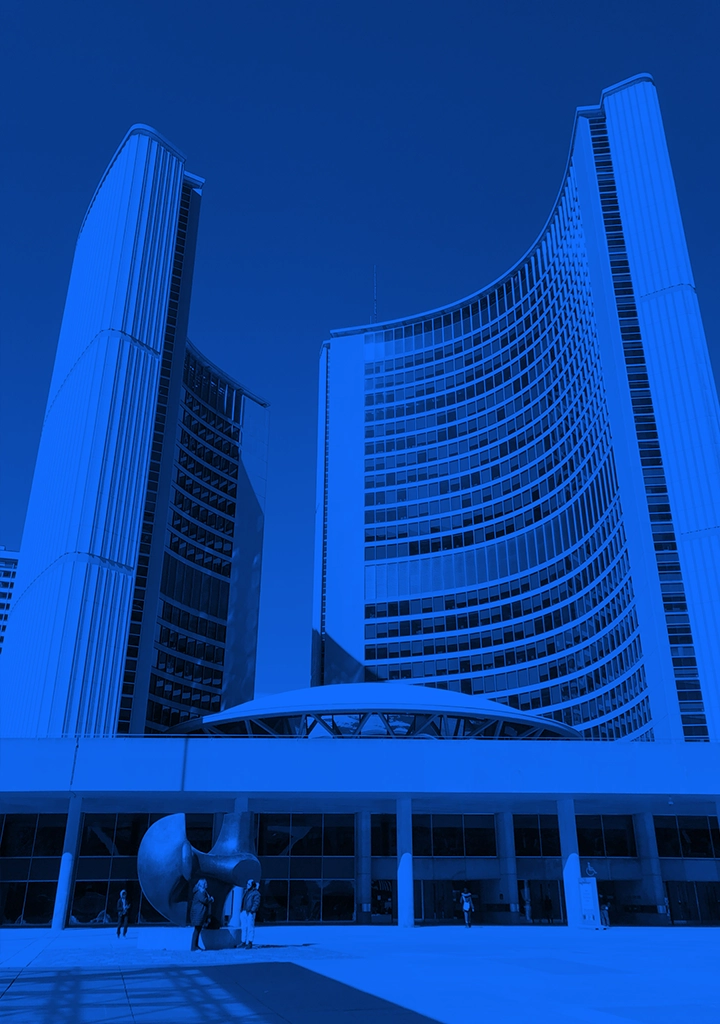Toronto Professional Discipline Lawyers


The Toronto professional discipline lawyers at Massey LLP know that any regulated professional can become the subject of a discipline complaint while providing their services to the public. Allegations of professional negligence and misconduct can be extremely serious and could lead to severe consequences from fines or suspension to license revocation and the loss of a career. There is also the spectre of civil claims and criminal proceedings, which can further harm a promising career.
That’s why it’s vital from the start to have the Toronto professional discipline lawyers at Massey LLP by your side when facing regulatory and professional complaints. We put our robust litigation experience to work immediately to achieve the best result for you.
The Toronto professional discipline lawyers at Massey LLP understand the importance of successfully handling the matter at the administrative level before it moves to a full-blown disciplinary proceeding before a professional licensing body: engaging us from the day the complaint arrives assists in your defence.
While our Toronto professional discipline lawyers at Massey LLP represent regulated professionals from many fields – including dentists, doctors, and academic discipline matters internal to universities – our practice focuses on:
Lawyers/Paralegals
Pharmacists
Veterinarians
The Toronto professional regulation lawyers at Massey LLP have seen that public complaints against regulated professionals are rising in Canada. Patient complaints about doctors have jumped, according to the Canadian Medical Protective Association (CMPA), citing poor communication, a vital issue, with most from Ontario.
Toronto professional regulation lawyers at Massey LLP say it’s crucial to work with a litigator who has a particular focus in professional discipline and knows the landscape. Professionals facing complaints are under considerable stress, and the threat to your life’s work needs to be protected as quickly as possible, guided by a steady hand.
Why work with our Toronto professional discipline lawyers?
Our Toronto professional discipline lawyers at Massey LLP know that in Canada, 20 per cent of jobs are regulated. The goal of these regulators is to protect health and safety by ensuring that professionals and tradespeople meet their regulatory body’s standards and rules as set out by government legislation. However, there are often valid defenses and mitigating factors in respect of even the most serious allegations of misconduct. As such, the importance of having a capable litigator with a thorough knowledge of the intricacies of current regulatory laws is key to success.
In the professional discipline landscape, it’s also a must for a Toronto professional discipline lawyer to have experience with the complaint investigative process and disciplinary hearing procedures to defend against complaints and minimize career impact. The stakes are high for the professional whose future is on the line and responding to the allegations to the licensing body is paramount.
The Toronto professional discipline lawyers at Massey LLP say that whether it’s defending a lawyer, veterinarian, pharmacist, dentist, or doctor, there’s very little difference between dealing with each – particularly in the health care sector where the entire regulatory scheme is established by a single piece of legislation, the Regulated Health Professions Act (RHPA).
In other words, when the Toronto professional discipline lawyers at Massey LLP defend a practitioner in front of, for example, the Ontario College of Traditional Chinese Medicine (OCTCM) we know it’s nearly procedurally identical to defending a practitioner before the College of Physicians and Surgeons of Ontario (CPSO).
In this reputational and potentially career-breaking area of law, experience matters. The Toronto professional discipline lawyers at Massey LLP’s lead counsel in the firm’s professional discipline practice, Frank Portman, successfully defended a dentist accused of misconduct allegations around infection control and billing procedures in Phillips v. Tawadrous (2022). Portman also had positive results in cases Khomami v. Lenet (2022) and Law Society of Ontario v. Cadogan (2022).
Further, it’s vital to have a Toronto professional discipline lawyer take on the matter as soon as possible because every college can impose an interim suspension in cases where they are concerned that the member poses a significant risk of public harm. This is a summary process, but it can have a devastating impact on a professional’s career, especially lawyers. If you’re in private practice and have a 10-12-month interruption in your practice, you’re basically starting from square one afterward.
The Toronto professional discipline lawyers at Massey LLP note there’s been a renewed emphasis on professional misconduct and professional discipline in the medical community – for example, several doctors have been suspended for handing out vaccine exemptions without any medical basis during the COVID-19 pandemic.
Our Toronto professional regulation lawyers know these cases end up being like interlocutory injunctions; very important but argued on compressed timelines. And the skillset is similar: wrestling a mass of information in a very short period with significant consequences.

Toronto professional regulation lawyers outline which professions are regulated in Canada
The Toronto professional regulation lawyers at Massey LLP explain the regulatory body is the organization that oversees the trade or profession. They set the standards, assess applicants’ credentials, register candidates, and mete out discipline to those who breach the rules. A Toronto professional regulation lawyer says the self-regulation ability comes from legislation which is an agreement with the government to police on their behalf to protect the public from practitioners who may abuse their position.
In Ontario, the professional organization, on the other hand, while some mix up the two, is really about serving its members’ interests – staging conferences, workshops, research, and networking, note the Toronto professional regulation lawyers at Massey LLP. Think of it this way: professional organizations serve their members; regulatory bodies serve the public interest.
For example, our Toronto professional regulation lawyers note that for lawyers and paralegals, the Law Society Act granted the law society authority to license and regulate with the Rules of Professional Conduct set out the ethical obligations.
The Dentistry Act governs dentists setting out the scope of practice and authorized acts, say the Toronto professional regulation lawyers at MASSEY LLP.
Our Toronto professional regulation lawyers know that real estate agents and brokers must follow the rules the province set out in the Real Estate and Business Brokers Act (REBBA), and the Real Estate Council of Ontario (RECO) enforces the regulations.
The Toronto professional regulation lawyers at MASSEY LLP explain that in Ontario, these professionals belong to regulated non-health professions:
- Agrologists
- Architects
- Certified Engineers Technicians and Technology
- Chartered Professional Accountants
- Early Childhood Educators
- Foresters
- Geoscientists
- Insurance Brokers
- Land Surveyors
- Lawyers
- Paralegals
- Professional Engineers
- Real Estate Agents
- Social Workers and Social Service Workers
- Teachers
- Veterinarians
These are the regulated health professionals in Ontario, say our Toronto professional regulation lawyers:
- Audiologists and Speech-Language Pathologists
- Chiropodists and Podiatrists
- Chiropractors
- Dental Hygienists
- Dentists
- Dental Technologists
- Denturists
- Dietitians
- Massage Therapists
- Medical Laboratory Technologists
- Medical Radiation Technologists
- Physicians and Surgeons
- Midwives
- Naturopaths
- Nurses
- Occupational Therapists
- Opticians
- Optometrists
- Pharmacists
- Physiotherapists
- Psychologists
- Respiratory Therapists
- Traditional Chinese Medicine Practitioners
Lawyers, paralegals should have a lawyer for LSO complaints, say Toronto professional discipline lawyers
The Toronto professional discipline lawyers at Massey LLP note the Law Society of Ontario’s process of dealing with complaints against lawyers and paralegals privately in pre-hearing case management is common among regulators – and a good chance for your counsel to negotiate a resolution early in the matter before it moves to an LSO Tribunal Panel.
Our Toronto professional regulation lawyers explain the LSO is authorized to investigate, hold hearings, and deliver sanctions on licensees for professional misconduct and conduct unbecoming under s. 49.3 of the Act.
Lawyers and paralegals may be tempted to represent themselves in the process. However, the hearing and discipline process before the LSO is uniquely different than either civil or criminal litigation and should be navigated with an experienced advocate.
Understanding the LSO complaints system provides insight into why, while you may be an excellent lawyer, you require litigators like our Toronto professional regulation lawyers experienced in this area to vigorously work on your behalf toward a good resolution.
The process includes:
Complaints and Compliance department: Screening and attempts are made to resolve some matters, but if not, the Toronto professional discipline lawyers at Massey LLP say it is moved up to the next stage.
Intake & Resolution: An investigation may be conducted if staff determine the licensee may have engaged in misconduct or lacks capacity to meet obligations. The file is closed if the evidence doesn’t prove the allegations or isn’t a regulatory concern.
Investigation Services: If the file isn’t closed it moves to an investigation that could involve documents requests and witness interviews. The matter could be closed at this stage or handled via a letter written by our Toronto professional discipline lawyers.
Proceedings Authorization Committee: Benchers decide if further action is required, including a discipline hearing, when a Notice of Application is issued notifying the licensee they are to appear before the Tribunal.
Interim proceedings: Where the LSO asserts that there are reasonable grounds to believe there is a significant risk of harm to the public, or to the public interest in the administration of justice, the Tribunal can impose restrictions on a licensee’s practice pending a full hearing, which can range from supervision to a complete suspension from practice.
Disposition: If the allegations are proven out there are a range of penalties, including a fine of less than $10,000, limitations on practice, suspension, or revocation of license. The Panel can also award costs against the licensee, which can be hundreds of thousands of dollars. The outcome is made public.
Appeal Division: A final decision or order may be appealed here by the Toronto discipline lawyers at Massey LLP.
Further appeal to Superior Court of Justice, Divisional Court.

The importance of vets having our Toronto professional regulation lawyers help handle complaints quickly
The Toronto professional regulation lawyers at Massey LLP know that, like other regulatory bodies, the College of Veterinarians of Ontario (CVO) must legally make public the names of those veterinarians found guilty of professional misconduct. Having a litigator experienced with regulatory law respond immediately is imperative to an early, positive outcome to the matter and saving your professional business and reputation.
The Veterinarians Act provides the college the authority to develop their by-laws, and the Toronto professional regulation lawyers at Massey LLP note that the goal is to ensure the 5,247 vets accredited in Ontario in 2021 comply with the standards and policies. For the first time in 30 years, the province is modernizing the regulatory framework with an eye to aligning oversight with other self-governing regulated professions.
Meanwhile, the way such matters unfold starts when a veterinarian’s client is unhappy with their pet’s care, say our Toronto professional discipline lawyers. A letter from the college arrives outlining the allegations, which you and your lawyer respond to in detail and provide it to the case investigator. The response should include all notes, lab reports, drug logs, X-rays, and any other pertinent records.
Some of the most common claims are for misdiagnosis, negligence, misconduct, and negligence, which, if necessary can be brought to a negotiated conclusion in the Mediation Resolutions Program (MRP). If mediation is unsuccessful, our Toronto professional discipline lawyers advise it moves on to the Discipline Committee where results can range from no action to license revocation.

When would a pharmacist need Toronto professional regulation lawyers?
The Toronto professional regulation lawyers of Massey LLP know that as of January 2023, a regulatory amendment allowed Ontario pharmacists to prescribe for 13 minor ailments – making it important to have a working relationship with experienced counsel. With broadened authorizations comes more risk potential of complaints than what was already a high bar.
Pharmacists are regulated by the Ontario College of Pharmacists (OCP) under the Pharmacy Act, set out under the Regulated Health Professions Act (RHPA) with a mandate to “serve and protect the public” – 40 actions are considered professional misconduct, any of which would require effective legal representation by our Toronto professional discipline lawyers.
Our Toronto professional regulation lawyers note that further legal powers are given to the college under the Drug and Pharmacies Regulation Act (DPRA) while guidelines are provided under the Code of Ethics for Pharmacists. After a complaint and written response, an investigation ensues, after which the Inquiries, Complaints and Reports Committee reviews and, if they find no misconduct, can close the matter. If they find misconduct, the committee can among other things, order education, issue a caution, or move it on to the Discipline Committee.
While certificate revocation is for the most serious findings of misconduct, if the Discipline Committee orders the penalty, a Toronto professional regulation lawyer at Massey LLP says the pharmacist can apply in writing for reinstatement after one year (five years for those cases involving patient sexual abuse). The matter moves to a hearing where the committee must be convinced the original reason for stripping the certificate has been addressed and present evidence it won’t happen again.
The Toronto professional regulation lawyers at Massey LLP note that the committee can reinstate the pharmacist, reinstate with conditions, or deny the request. In a departure from other regulated professions, the pharmacist doesn’t have the right to appeal to the Divisional Court for relief if they fail but can reapply to the committee six months later. Our Toronto professional discipline lawyers recommend engaging qualified counsel to assist in drafting the original response at the start of the process.
Call our Toronto professional discipline lawyers now
If your chosen career is one of the regulated or self-regulated professions and you are facing allegations of professional misconduct, time is not on your side. You need to get the right Toronto professional discipline lawyers working with you to maintain your reputation and your good standing. Call or email our lawyers today.
